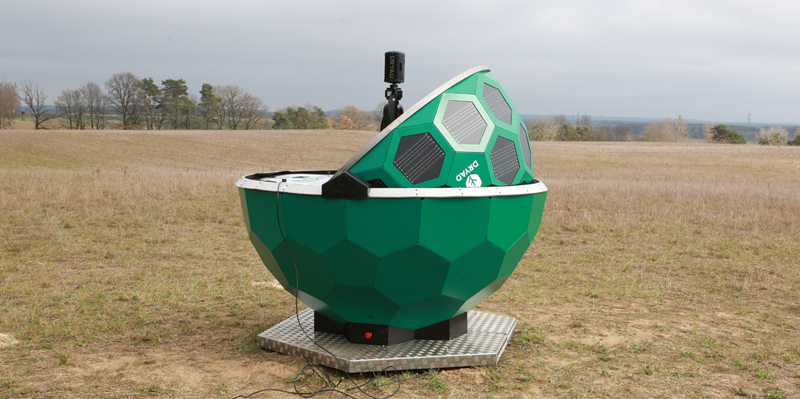GEOconnexion spoke to Jason Poitras, General Manager of MicroSurvey Software Inc., about the Canadian company’s move into global markets and its plans for the future
GEO: The company has now been operating for more than 30 years and, since 2012, as part of the Hexagon Group. How has the business evolved since that acquisition?
Jason Poitras (JP): Overall the acquisition has been very positive. We’ve increased our distribution globally, we’ve kept our culture intact, and we successfully transitioned to a new leader (me) when the previous owner / founder retired two years ago.
When you gain rock solid backing from a substantial global powerhouse such as Hexagon, any concerns you may have had about investing in an independently-owned company tend to dissipate quickly. With the help of our Hexagon family partner companies we’ve been able to grow our global reach, enhancing our distribution and support network around the world.
The acquisition also opened doors for MicroSurvey to begin to re-use technology advances from other Hexagon family companies that help us become more profitable, and innovative.
GEO: The development and provision of field data collection solutions is a one of several principal activities for MicroSurvey. What proportion of revenue accrues from this particular activity?
JP: Revenue and profit numbers are confidential, but I can tell you that the mobile products we build are a key part of our business strategy and expect that it will continue to be an important part of our business in the coming years. Our mobile products are some of the best in the world and continue to get better. It’s been a long road since our first release of FieldGenius in 2001, but we persevered and FieldGenius is now one of the best independent (from the manufacturers) third party data collection systems in the world.
GEO: As a global player, which markets do you see as particularly promising in the medium-to-long term?
JP: Our core business is surveying and traditionally we’ve done well in Canada and the United States. 10 years ago, when we decided to expand globally, we were successful in selling into other English-speaking countries such as Australia, Ireland, and the United Kingdom and those markets continue to be good for us. STAR*NET and FieldGenius in particular have done well in capturing market share in non-English speaking countries and we expect this trend to continue.
At the last count, MicroSurvey products were in use in 150 countries. That’s a lot.
GEO: How is your global sales and distribution network organised? And are any changes to this in the pipeline?
JP: Globally we sell through dealers, the Leica channel, and also OEM products for some of the largest survey equipment manufacturers in the world. Selling and supporting our products globally hasn’t been easy, but we feel it is an important growth strategy for MicroSurvey and we will continue to invest to grow our market share in key markets.
GEO: What are your favourite products that you build and why?
JP: My favourite products are the ones that make us the most money! All kidding aside, the truth is some of them are not necessarily our top money makers but are important for us strategically. Three come to mind for different reasons, and they are FieldGenius, STAR*NET and IMS Map360.
FieldGenius and STAR*NET are favourites because they have helped us grow our business outside of North America. Without them, our global expansion would have been difficult. These two products also complete our solution and truly provide field to finish workflow for our customers.
IMS Map360 is a forensic product we build for Leica Geosystems. This product is a good example of two Hexagon companies working together as one, to build an innovative product. IMS Map360 has been well received in the market place and there are some truly unique features coming soon that I am particularly proud of. Some of them will be industry firsts.
GEO: Has Autodesk’s move to a subscription model affected your business?
JP: It’s tough to gauge how it’s affected our business but I can tell you one thing for sure, many customers are not happy to be forced into a subscription-only model.
I don’t think subscription models are bad for the customers. I think they are actually quite good. Currently, we sell only perpetual licenses but will start to offer subscription models in the future and offer both perpetual and subscription models to our customers.
GEO: How is MicroSurvey responding to the move towards all-in-one packages that integrate optical Total Stations and LiDAR sensors?
JP: Several years ago we started working on supporting more data types that users may be capturing, and focused a lot of development on adding point cloud support to our desktop products. Compared to some of our direct competitors, we feel we have the best all-in-one survey solution for working with point cloud data.
GEO: As UAV sensors are increasingly being adopted for survey purposes, is MicroSurvey’s recent partnership with Pix4D the first of a number of such developments in this arena?
JP: As UAS quality and user-friendliness increases, regulations get sorted out and cost continues to decrease, you will see increased use and adoption in the mainstream. These systems reduce the cost of acquiring aerial data, photogrammetry and point clouds. Use of these devices along with analytical software are changing the way companies view and use terrestrial data in their workflows.
We are an independent software company, and we like to support other solutions that our customers are already using such as Pix4D. Our partnership ensures that we can deliver an enhanced solution to our customers and provide them with the tools they need to work with Pix4D data.
GEO: What particular challenges does MicroSurvey face going forward?
JP: One of our biggest challenges we have right now is trying to stay on top of all the innovative trends changing in the marketplace. Trends like UAV sensors, the Leica BLK360, and similar technologies are all examples of recent trends that have had, or will have a big impact in our market. The key is to identify how we can turn these trends into opportunities and build solutions that our customers need and will want to buy.
Subscribe to our newsletter
Stay updated on the latest technology, innovation product arrivals and exciting offers to your inbox.
Newsletter

